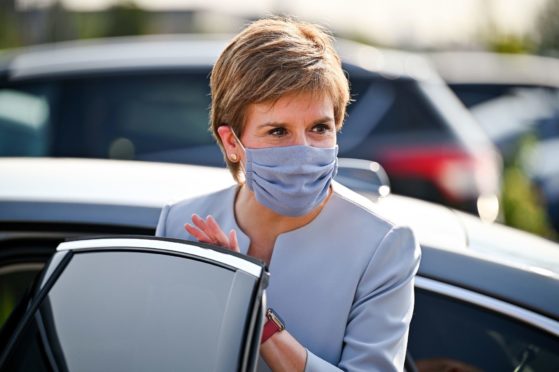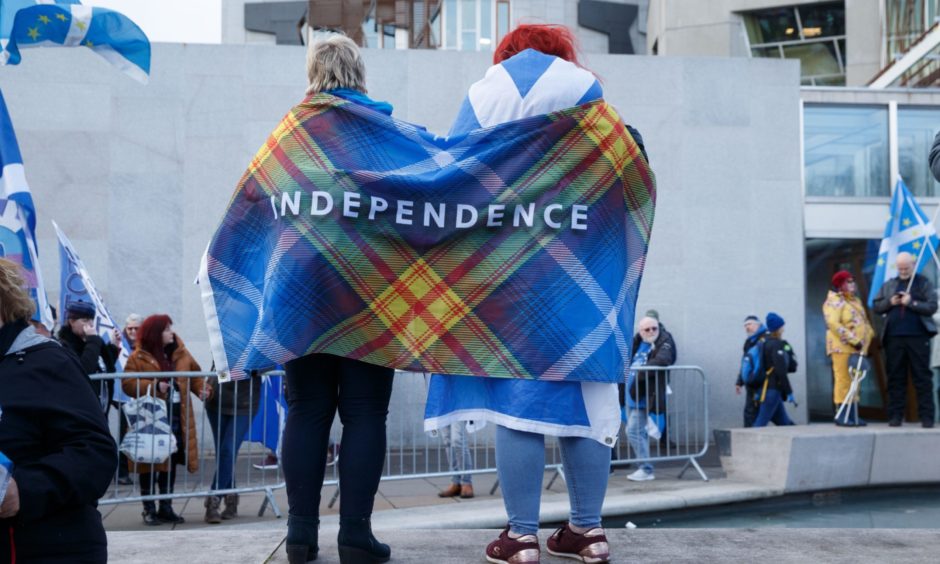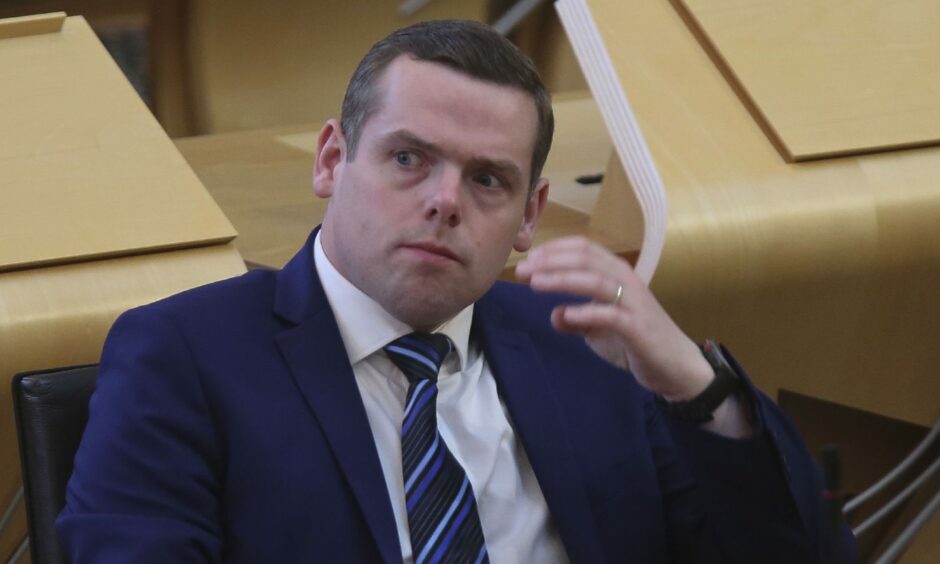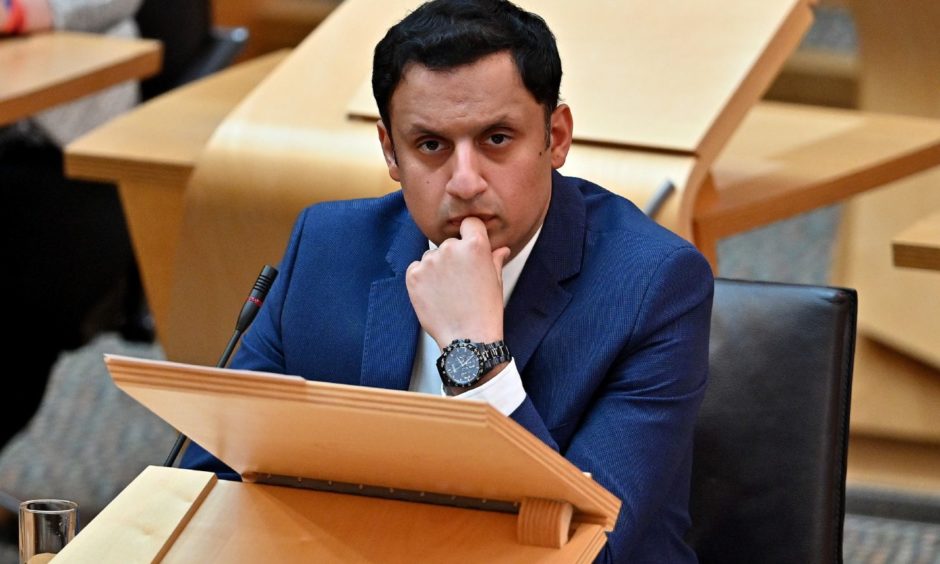Nicola Sturgeon has unveiled the Scottish Government’s new beefed up programme for government but opposition leaders hit out at its “focus” on a second referendum on Scottish independence.
The first minister told MSPs work will restart on a new referendum, including plans to deliver a “detailed prospectus” outlining how an independent Scotland would work, with the aim of holding a vote by the end of 2023.
The independence project was suspended by ministers when the Covid pandemic struck early last year but the SNP leader insisted it is now needed to give the public a “fully informed” choice on the country’s constitutional future.
The plans came under blistering attack from Ms Sturgeon’s political opponents, including critics within the Yes movement who accused her of “kicking the can down the road” on holding a new referendum.
What ministers hope to achieve
The Scottish Government said the main aims of its agenda is “leading Scotland safely out of the pandemic, urgently confronting climate change, driving a green, fair economic recovery, and boosting opportunities for children and young people”.
The programme sets out plans for a record increase in frontline health spending, new legislation for a National Care Service, a system providing low-income families with free childcare before and after school and during holidays, and actions to drive forward Scotland’s national mission to end child poverty.
First Minister @NicolaSturgeon set out our Programme for Government today in @ScotParl.
It details our work towards a sustainable recovery from #coronavirus and our plans to shape a fairer, greener and more prosperous Scotland.
Read more ➡ https://t.co/ynOovuvtbb#ScotPfG pic.twitter.com/uirx41oXEc
— Scottish Government (@scotgov) September 7, 2021
It also includes plans to help secure a just transition to net zero – creating opportunities for new, good and green jobs, making homes easier and greener to heat, and encouraging people to walk, wheel or cycle instead of driving.
We reported how last year’s programme for government, which like this year’s came under the shadow of the Covid-19 pandemic, contained the lowest number of planned Bills under any SNP government since devolution.
It included just four: the St Andrews University (Degrees in Medicine and Dentistry), Budget, Domestic Abuse and UNCRC (Incorporation) Bills – a significant reduction from the 16 new Bills planned by Ms Sturgeon in 2017-18 or the same number recorded by her predecessor, Alex Salmond, in 2011-12.
This was in part down to 2021 being an election year but the Scottish Parliament was also forced to deal with a number of challenges, including emergency legislation to deal with the coronavirus, social distancing at parliament and financial pressures.
The Scottish Government was forced to drop legislative work in April as the Covid-19 pandemic worsened, including an expected update to the climate change plan and reforms to the Gender Recognition Act.
A beefed up agenda
This year marks a return to some degree of normality with ministers intending to introduce a further 12 Bills over the course of the parliamentary year – on top of the three already introduced since May’s Scottish Parliament election.
These include an Annual Budget Bill to provide parliamentary approval of the government’s spending plans, legislation to reform public services and the justice system as part of the Covid recovery, and to maintain self-isolation payments.
The government will also push ahead with controversial reforms to the Gender Recognition Act, introduce changes to how fireworks can be used and sold in Scotland, and strengthen the law on the use of dogs to hunt foxes and other wild mammals.
Also included is a Bill to help ministers deliver on their promise to set up a National Care Service, a Bail and Release from Custody Bill to reform how decisions are made, and the Good Food Nation Bill to introduce new statutory requirements on authorities.
Ministers will also introduce legislative provision for the granting of a collective pardon for certain offences relating to the 1984‑85 miners’ strike, a Bill designed to make various types of commercial transactions more efficient, and one preventing appeals for business rates revaluations due to Covid-19.
🏴 @NicolaSturgeon set out @scotgov's bold, ambitious Programme for Government.
🧓 National Care Service
🍝 Free school meals for all primary pupils
🚍 Free bus travel for under-22s
💷 Double the Scottish Child Payment
🏡 110,000 affordable homes
🗳 The choice of independence pic.twitter.com/pPeCfkUQhg— The SNP (@theSNP) September 7, 2021
The Carer’s Allowance Supplement Bill, which allows for a doubling of the scheduled Carers’ Allowance Supplement in December 2021, and the Transvaginal Mesh Removal (Cost Reimbursement) (Scotland) Bill are continuing their parliamentary scrutiny.
The SNP published a list of “key stakeholders”, including the Federation of Small Businesses Scotland, Shelter Scotland and Trussell Trust Scotland, who it said had “backed” the announcement following a frosty response at Holyrood.
Shunted aside
Scottish Conservative leader Douglas Ross accused Nicola Sturgeon of putting “independence over jobs”.
“The focus of her government is on a referendum, not Scotland’s recovery,” he said. “The economy is not front and centre, it’s been shunted aside in favour of a plan to separate Scotland within two years.
“The SNP-Green government should be pouring all its effort into rebuilding Scotland. Instead, the government will be distracted by desperately trying to build a new case for independence.”
Scottish Labour leader Anas Sarwar insisted the plan “isn’t good enough, it isn’t bold enough and it won’t do enough”.
“This may surprise the first minister but there are ideas bigger than independence,” he said. “What we have seen in this programme for government is just another example of a pattern that defines the SNP’s approach.
“Promise big, never deliver, blame someone else and hope people have forgotten about it when you get round to promising it again. Frankly, Scotland deserves better.”
Scottish Liberal Democrat leader Alex Cole Hamilton, described the programme for government as “old hype, reheated and rebadged”.
“Civil service time should not be spent on a new white paper,” he added. “Independence will starve everything else of oxygen when people need Parliament to set aside the battles of the past and work together.”
Meanwhile, Alba MP Kenny MacAskill said the programme only “pays lip service to independence” and the commitment to a referendum by 2023 “is not worth the paper it is written on as it is dependent on recovery from Covid”.



